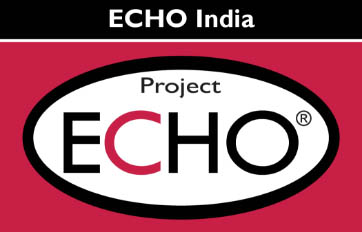Every year in October, shades of pink take over our timelines, our streets, and our conversations. Ribbons, marches and campaigns remind us of a disease that touches millions of lives: Breast Cancer. It is now the most common cancer among women in India, and yet for many families the word is still spoken in hushed tones.
Yes, awareness has improved over the years. More women are talking about it and conversations around screening are no longer as rare as they once were. But the reality is that too many women discover the disease at a stage when treatment becomes complicated, expensive, and far more painful for patients and their families.
“I found a small lump but thought it was nothing,” recalls a woman from rural Punjab. “By the time I went to the hospital, it had already spread.” Her story is not unique. Research shows that a woman who finds a lump and seeks help early often has every chance of survival. But one who delays, because she does not know the risks, because her nearest clinic is hours away, or because of stigma, faces far worse odds.
The Rural Disadvantage
In urban India, mammography camps are being held more frequently, and health messages are beginning to reach households. But in India’s villages and small towns, the story is starkly different. A study of 200 breast cancer cases in Punjab between 2021 and 2024 revealed that 65% of rural women were diagnosed at stage III or IV, well beyond the point of easier, less invasive treatment. Many could not complete treatment because of cost, travel, or simply not knowing where to seek care.
The Indian Council Medical Research (ICMR) [1] study, using the GLOBOCON data, published in the Lancet, showed that India is ranked third in cancer incidence globally, after the US and China, and second in mortality after China. States such as Tamil Nadu, Telangana, Karnataka, and Delhi were identified as having some of the highest burdens, but the situation in rural and underserved areas is even more concerning. [2]
The Indian Council of Medical Research (ICMR) [3] projected that by 2025, India will see close to 1.57 million new cancer cases with breast cancer emerging as the leading cancer among women.
Research also shows that survival is deeply uneven. An analysis of population-based cancer registries found that while women in cities are more likely to be diagnosed early and survive, those in rural registries face a much grimmer picture: mortality-to-incidence ratios are as high as 66% [4] in rural areas, compared to about 8% in urban centres.
These findings echo what frontline workers have been saying for years: where a woman lives still determines her chances of survival.
Nurses at the Frontline
At ECHO India, we believe this gap can be bridged only if we strengthen the hands of those who stand closest to the community - our ASHAs, ANMs and frontline health workers. They are often the first to notice when something is wrong, the first to answer questions in villages, and the first to encourage families to seek further care. If they are trained and supported, the ripple effect is enormous.
Over the past year, ECHO India has been working with partners across the country to build this very capacity. In Punjab, a structured program at AIIMS Bathinda focused on equipping nurses with the skills to diagnose and manage breast cancer. In Delhi, the Rajkumari Amrit Kaur College of Nursing broadened its cancer programs to include both breast and cervical cancers, giving nurses the confidence to advocate for women during treatment. In Andhra Pradesh, the NRI College of Nursing trained nurses on prevention and early detection so that more women could be guided to timely screening. In Tamil Nadu, Omayal Achi College of Nursing brought together 58 nurses to strengthen their knowledge of early warning signs. Meanwhile in Karnataka, the Directorate of Medical Education reached nurses working in primary care settings, ensuring they could counsel patients in smaller towns and rural clinics.
At AIIMS Jodhpur, 75 nurses deepened their understanding of risk factors and screening. In Bihar, more than 100 nurses were trained in early diagnosis and treatment planning. These stories repeat across the map. In Maharashtra, Goa, Rajasthan, Gujarat and Chhattisgarh, similar programs are quietly reshaping the way nurses respond to breast cancer. Each of these efforts, though small in isolation, adds up to a nationwide movement that is putting lifesaving knowledge in the hands of those who need it most.
ECHO India is working towards the kind of awareness which is: practical, actionable, and rooted in community healthcare. By using the ECHO Model’s ‘all teach, all learn’ approach, expert doctors mentor nurses and health workers, who in turn take that knowledge back to their patients and peers. The learning flows in both directions - what works in a large hospital is adapted to village clinics, and challenges faced on the ground improves the next round of training.
A Shared Responsibility
As we mark Breast Cancer Awareness Month, the call to action is clear. We must go beyond awareness campaigns and shift our focus to building the capacity of the healthcare workers, especially in rural areas. We must break the silence in families and communities, challenge the stigma that still surrounds the disease, and ensure that no woman delays seeking help because she feels unsupported or afraid.
At ECHO India, along with our partners in medical colleges, nursing councils, and state institutions, we remain committed to this mission. The progress we have seen over the last year shows us that change is possible: nurses feel more confident, patients are being referred earlier, and communities are beginning to talk more openly about breast cancer.
This October, let us remember that awareness is the spark, but action is the fire that saves lives. Early detection should not be a privilege of geography or income - it should be every woman’s right.
References:
[3] https://www.thelancet.com/journals/lansea/article/PIIS2772-3682(25)00017-4/fulltext
